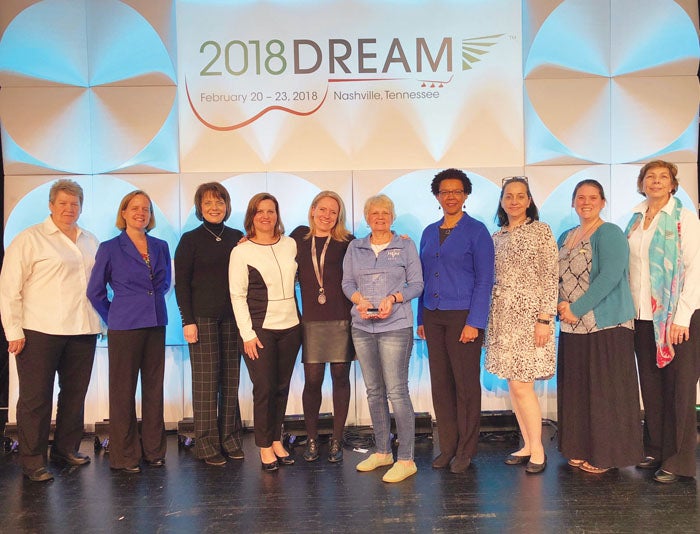Davidson County Community College wins award for student financial empowerment
Published 12:00 am Thursday, March 1, 2018

- Left to right: Dr. Jane Birkholz, Stacy Holliday, Susan Huneycutt, Susan Burleson, Trish Weaver, Dr. Mary Rittling, Dr. Rhonda Q. Coats, Julie Dillon and Colleen Thomas.
Davidson County Community College
NASHVILLE, Tenn. – The financial services company OneMain Financial and the national nonprofit community college reform organization Achieving the Dream recently announced that Davidson County Community College won the 2018 Community College Financial Empowerment Award.
The prize recognizes a network institution for outstanding achievement and innovation in developing effective financial empowerment programs for students.
The award includes a $25,000 prize that will allow the college to strengthen and expand its efforts to help students increase their financial standing so they can complete their studies.
“We know that finances are a primary obstacle for successful completion of credentials that will increase economic mobility,” said DCCC President Mary Rittling.
Instead of treating students’ financial challenges as “a problem we can’t fix,” Rittling said the college decided to “turn the financial challenges that students face into positives in ways that can help students succeed.”
“As a company committed to helping people with their financial needs, we’re proud to partner with Achieving the Dream and support Davidson County Community College’s financial education program,” said Trish Weaver, OneMain’s philanthropy director. “Funding programs that help people gain financial confidence and overcome financial crises aligns with our mission to improve the financial health of our local communities.”
Nearly three-fourths of the college’s students receive financial aid, which many of them rely on for living expenses as well as college costs.
“New research clearly shows that too many community college students are hungry, lack stable housing, and struggle to pay for transportation and child care,” said Karen A. Stout, president and CEO of Achieving the Dream. “On behalf of our network, I commend Davidson County Community College for recognizing that their students’ financial challenges are the college’s challenges, too, and that academic success depends a great deal on offering students support, resources, and opportunities to build financial management skills.”
The college launched a comprehensive campaign to improve students’ financial well-being and provide students with targeted assistance at different stages of their college career.
First, students can access the College Transition Center, which helps many first-year students strengthen skills to prepare for credit-bearing courses.
Second, students can participate in the Single Stop program, a national initiative that connects students with social services and financial assistance. At DCCC, trained staff members help students with housing, transportation, food assistance, child care, food stamps, Medicaid, medical resources, tax services, legal services, and financial counseling.
DCCC also invested in EX$EL, an online financial literacy and student loan repayment module that is used by counselors to advise and educate students on how to manage debt and student loan repayment. Learning how to manage debt is a critical skill for students to master in order to succeed during and after college.
The results of DCCC’s financial literacy efforts have been promising.
Last spring, only 2 percent of students served by the Single Stop program withdrew from the college. This compares to an average institutional withdrawal-within-term rate of 5.3 percent. In addition, the EX$EL program contributed to a decrease in the student loan default rate from 22 percent to 18 percent for the 2011 and 2015 cohorts, respectively.
Before the Community Transition Center was started in 2015, more than 50 percent of all students taking the lowest levels of developmental mathematics did not complete the course in their first attempt, and only 67 percent of them returned to DCCC the following semester. In comparison, fewer than 10 percent of students who worked with the center needed to retake developmental math.


